Brexit: Irish concerns over implications of UK vote
- Published
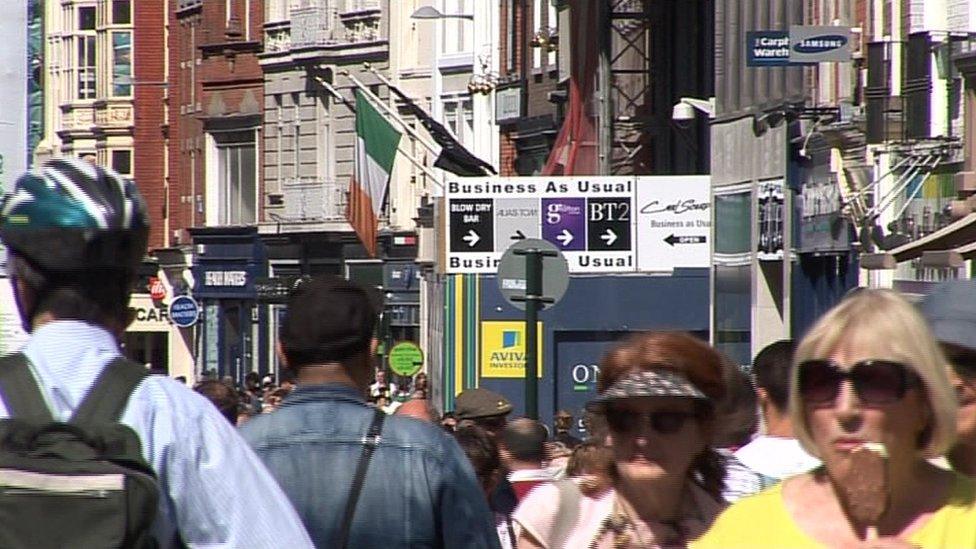
On one of the hottest days of the year, BBC News NI listened to the concerns of people on Dublin's Grafton Street about the implications of the UK's Brexit vote
The possibility of an Irish border poll arising from the UK's European Union referendum result has made headlines this week.
But nearly four weeks after the Brexit vote, how much closer are we to knowing how Ireland - north and south - is going to be affected?
On a sunny Dublin afternoon, with so many ice creams being eaten as people stroll past the many buskers, it is easy to forget how worried official Ireland is about the Brexit referendum result.
What might it mean for the Common Travel Area between the UK and Ireland that pre-dates the European Union?
'Inundated'
And could it have implications for trade between the two states, estimated to be worth over 1bn euros (£840m) a week?
And while there can be no answers to those questions until the British begin Brexit negotiations, John McGrane, director general of the British Irish Chamber of Commerce, says there are already consequences.
"We are being inundated with queries from UK firms who say that they need to know with certainty that they can have a base in an EU country that can trade with the EU without tariffs or costs."
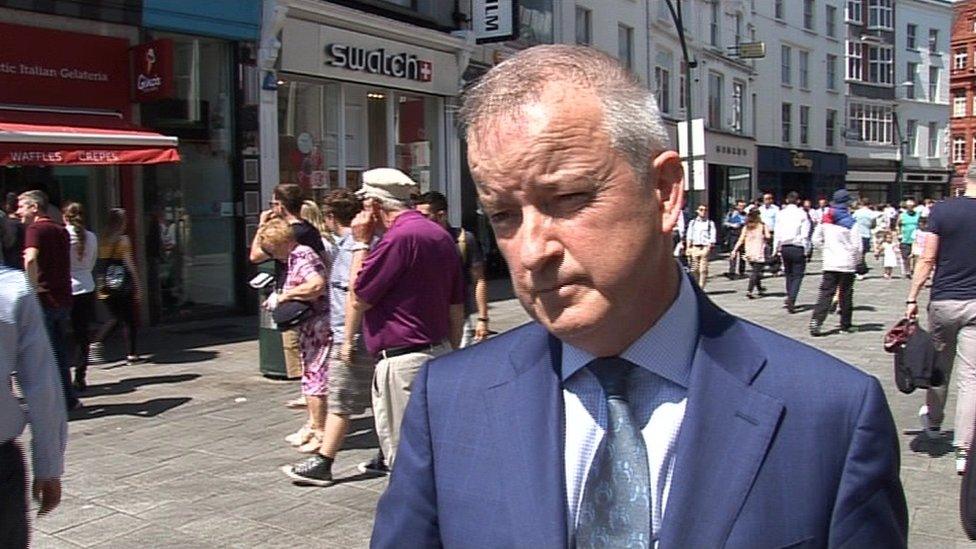
John McGrane, director general of the British Irish Chamber of Commerce, says his organisation has been inundated with calls from UK firms
Mr McGrane added that the firms also said they wanted a base "with the same language and legal system and with a commitment to staying in the EU".
His organisation represents businesses employing more than 2m people.
On Thursday morning the French President, Francois Hollande, will be in Dublin.
'Fragile'
Last week, Taoiseach (Irish Prime Minister) Enda Kenny was reminded in Berlin by German Chancellor Angela Merkel, that whatever about the close UK-Irish ties, the Republic of Ireland was only one of 27 countries the EU would be negotiating for.
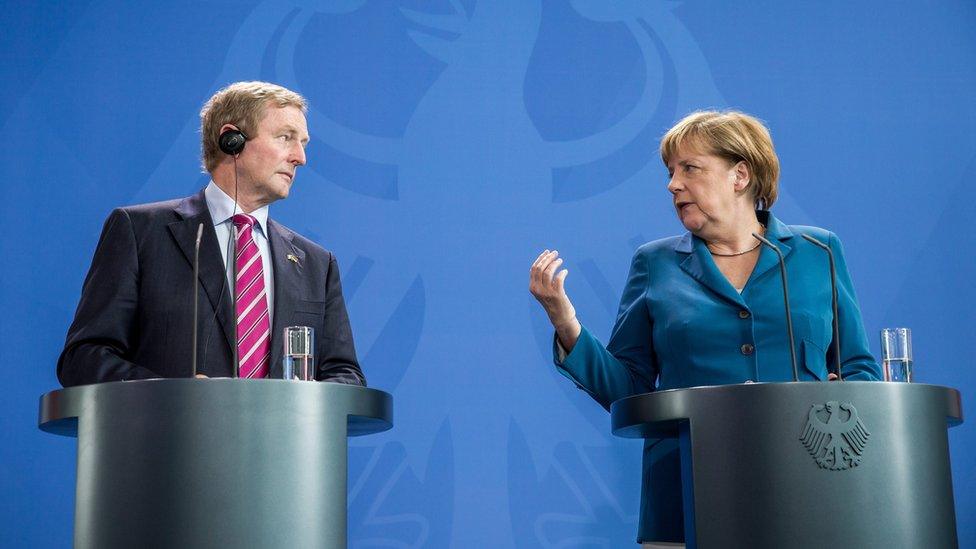
Taoiseach Enda Kenny and German Chancellor Angela Merkel discussed Brexit issues as they held a joint press conference in Berlin on 12 July
At that meeting and since - nevermind this week's talk of a border poll - Mr Kenny has been playing up the importance of Northern Ireland, the land border and the peace process in talks, as part of the special Irish concerns.
He says: "We work as a government in Ireland with the executive in Northern Ireland, meeting on a very regular basis.
"It is a fragile entity that can't be taken for granted and it will be a central part of the negotiations that will take place, irrespective of the outcome of the Brexit decision."
'Cack-handed'
Northern Ireland is also very much on the minds of the Republic of Ireland's largest opposition party, Fianna Fáil.
The party's foreign affairs spokesman, Darragh O'Brien, says he thought Mr Kenny was slightly cack-handed in floating the idea of an all-island Brexit forum without consulting First Minster Arlene Foster or her Democratic Unionist Party.
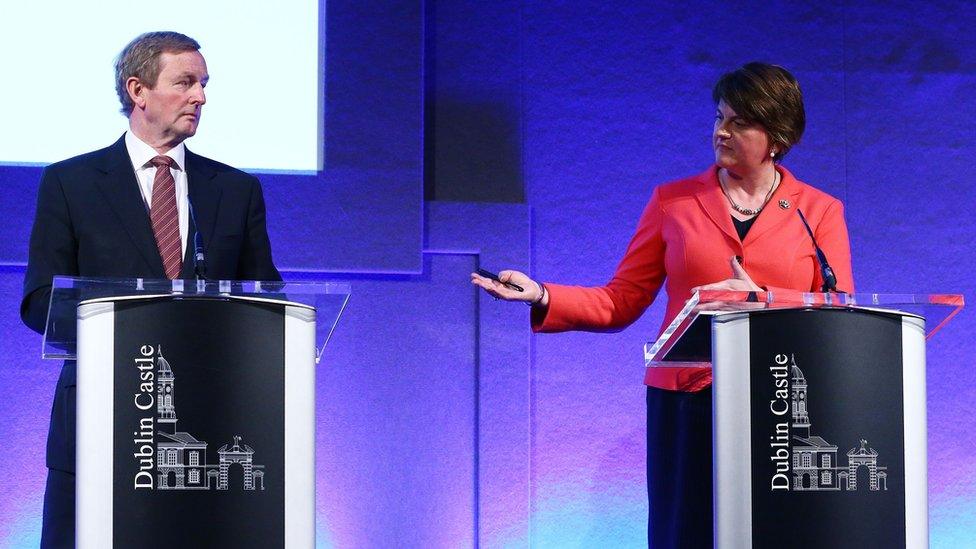
Earlier this month, Northern Ireland First Minister Arlene Foster said she had not been consulted over Enda Kenny's suggestion of an all-Ireland forum
However, Mr O'Brien says he still believes there is merit in some form of consultation on the issue.
"Fundamentally at the end of the day, the people of Northern Ireland still voted to remain, quite substantively, actually.
"That just shows you, on a democratic basis, where the people are.
"So, should their voice not be heard? Re-establish the Civic Forum, which is permitted under the Good Friday Agreement.
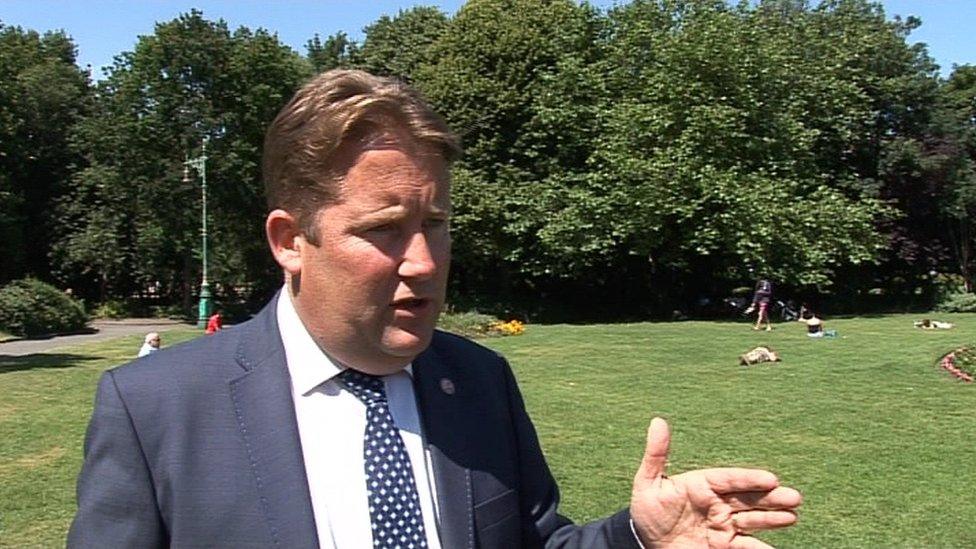
Fianna Fáil's foreign affairs spokesman, Darragh O'Brien said the Northern Ireland electorated voted to stay in the EU and their voices should be heard
"And let's look at an all-island forum - it won't be an all-Ireland forum - to look at our areas of interest and the areas of concern and let's work together", he says.
'Impossible to know'
On Dublin's Grafton Street I meet a British woman who is seeking to get an Irish passport but who wants to hold on to her British one.
I also speak to an Irishman who is worried about the trade implications of the Brexit vote; another British woman who blames the older generation for making a decision that will affect her and an Irishman who says it is impossible to know at this stage what the consequences might be.
And that is probably the truth of it - nearly four weeks after the result, nobody is any the wiser as to what the post-Brexit world will look or feel like.
- Published19 July 2016
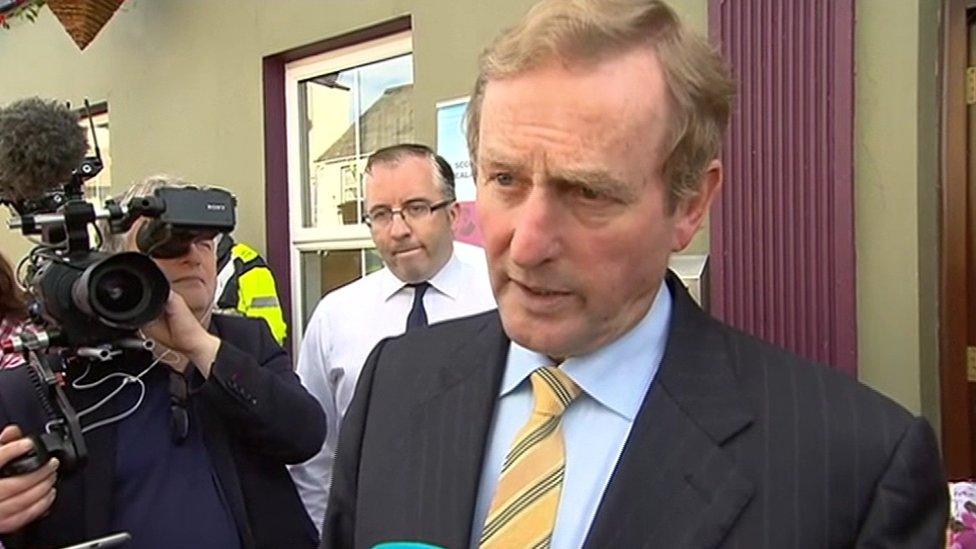
- Published18 July 2016

- Published17 July 2016
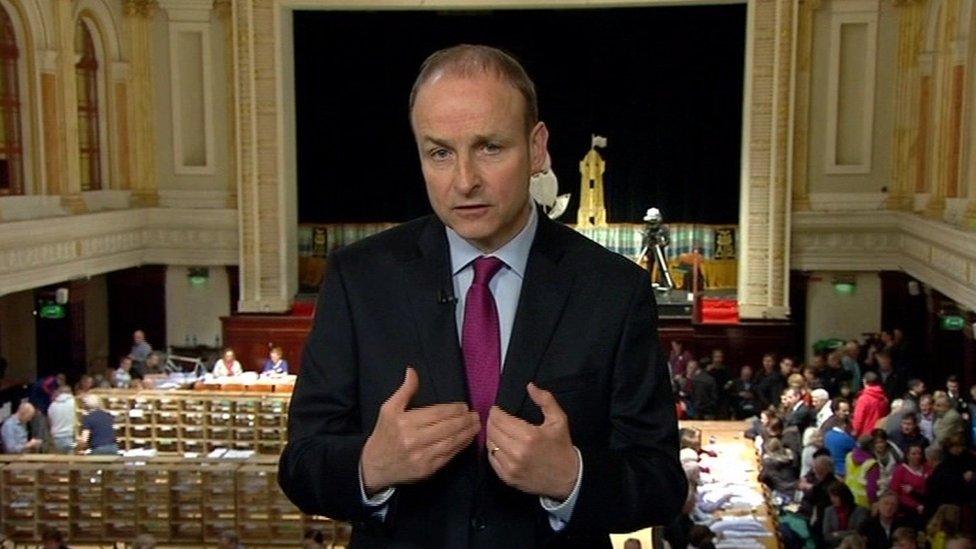
- Published25 February 2019